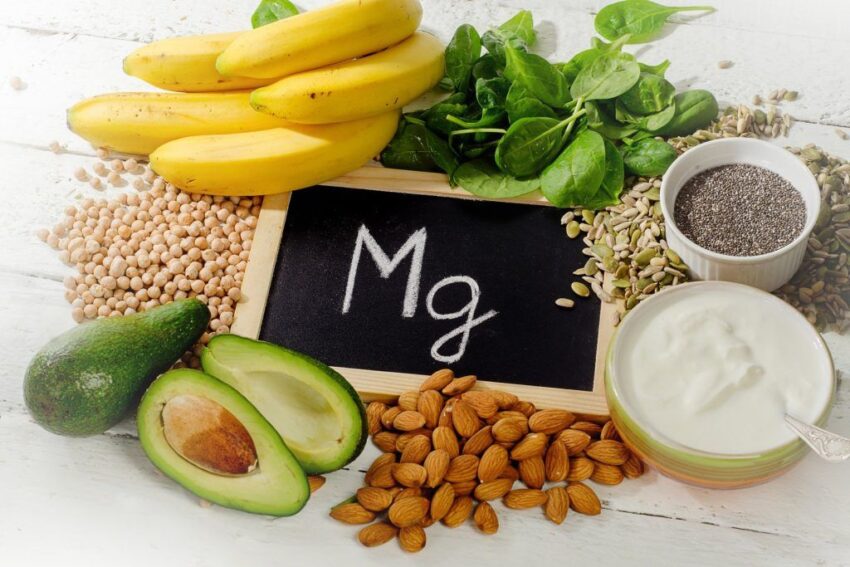Magnesium is an essential mineral for the functioning of the human body, participating in more than 300 biochemical reactions that affect everything from energy production to muscle, brain and cardiovascular function. Its impact on health is profound and spans multiple systems, making it a key nutrient for overall well-being:
Mental and brain health:
- Regulates the nervous system and decreases cortisol production.
- Promotes the production of melatonin and promotes deep sleep.
- Improves memory, learning and concentration.
- May reduce the risk of Alzheimer's and Parkinson's.
Muscular and physical health:
- Prevents cramps, spasms and muscle fatigue.
- It is key in the generation of ATP, the main source of cellular energy.
- Reduces inflammation and post-workout muscle soreness.
- Improves calcium absorption and strengthens bones.
Cardiovascular and metabolic health:
- Relaxes blood vessels and improves circulation.
- Improves heart rate and reduces arterial inflammation.
- Helps control blood sugar levels and prevents type 2 diabetes.
- Contributes to the reduction of bad cholesterol (LDL)
Hormonal and digestive balance:
- It is important for men's health and muscle strength.
- Helps control cortisol levels
- Helps prevent constipation and promotes intestinal transit.
- Facilitates the use of calcium, potassium and zinc.
Immune function and longevity:
- Participates in the production of white blood cells.
- Prevents degenerative and autoimmune diseases.
- Helps reduce cellular aging and oxidative stress.
What are the benefits of consuming magnesium post-workout?
Energy Production: Magnesium is a key cofactor in the production of ATP, the primary source of cellular energy. During exercise, ATP levels are rapidly depleted, and adequate magnesium availability ensures a continuous supply of energy.
Muscle contraction and relaxation: This mineral regulates the balance between calcium and potassium in muscle cells, allowing effective muscle contractions and preventing cramps.
Reducing fatigue: Magnesium helps decrease lactate buildup in muscles during intense workouts, which can delay muscle fatigue.
Support for the nervous system: During exercise, the nervous system is highly active. Magnesium contributes to maintaining proper nerve function and reducing exercise-induced stress.
Muscle recovery: Magnesium has anti-inflammatory properties and can help reduce delayed onset muscle soreness (DOMS), promoting faster recovery.
Main symptoms of magnesium deficiency
- Muscular: Cramps, spasms, weakness, stiffness.
- Neurological: Tremors, tingling, anxiety, insomnia.
- Cardiac: Hypertension, palpitations, arrhythmias.
- Psychological: Depression, difficulty concentrating.
- General: Chronic fatigue, migraines, noise sensitivity.
Sources of magnesium in the diet
- Green leafy vegetables: Spinach, chard.
- Nuts and seeds: Almonds, cashews, pumpkin seeds.
- Whole grains: Oats, quinoa, brown rice.
- Legumes: Lentils, chickpeas, beans.
- Dark chocolate: A delicious source rich in magnesium.
However, although magnesium is present in many foods, it is more difficult to achieve the optimal levels required today due to factors such as soil depletion, food processing, unbalanced diets and the loss of this mineral during cooking processes. Therefore, it may be beneficial to consider supplementation.
Magnesium supplementation
Here is a selection of different forms of magnesium, focused exclusively on physical performance and relaxation:
Magnesium Citrate: It has a high bioavailability. It facilitates muscle recovery and energy production. It is used to improve physical endurance and reduce cramps during exercise. The best time to take it is before or after training.
Magnesium Malate: Improves cellular energy production. It is used to reduce fatigue and support sustained performance during intense activities. The best time to take it is during the day, especially before training.
Magnesium Glycinate: It has a very high bioavailability. It helps relax the muscles and the mind. It is commonly used to relieve stress, improve sleep quality and reduce muscle tension. The best time to take it is before bedtime.
Magnesium threonate: Its bioavailability for the body is moderate, but for the brain it is high. It crosses the blood-brain barrier, improving cognitive function and mental relaxation. It is used to promote deep relaxation and mental clarity. The best time to take it is at night, especially if you need a mental break after the day.
Keep in mind that both goals—enhancing physical performance and promoting relaxation—can benefit from strategic planning. For example, you might use magnesium citrate in the morning for sustained energy, and glycinate in the evening for rest and recovery.
Recommended dosage: For physically active adults, 300 to 400 mg daily is generally safe and effective, although individual needs may vary.
